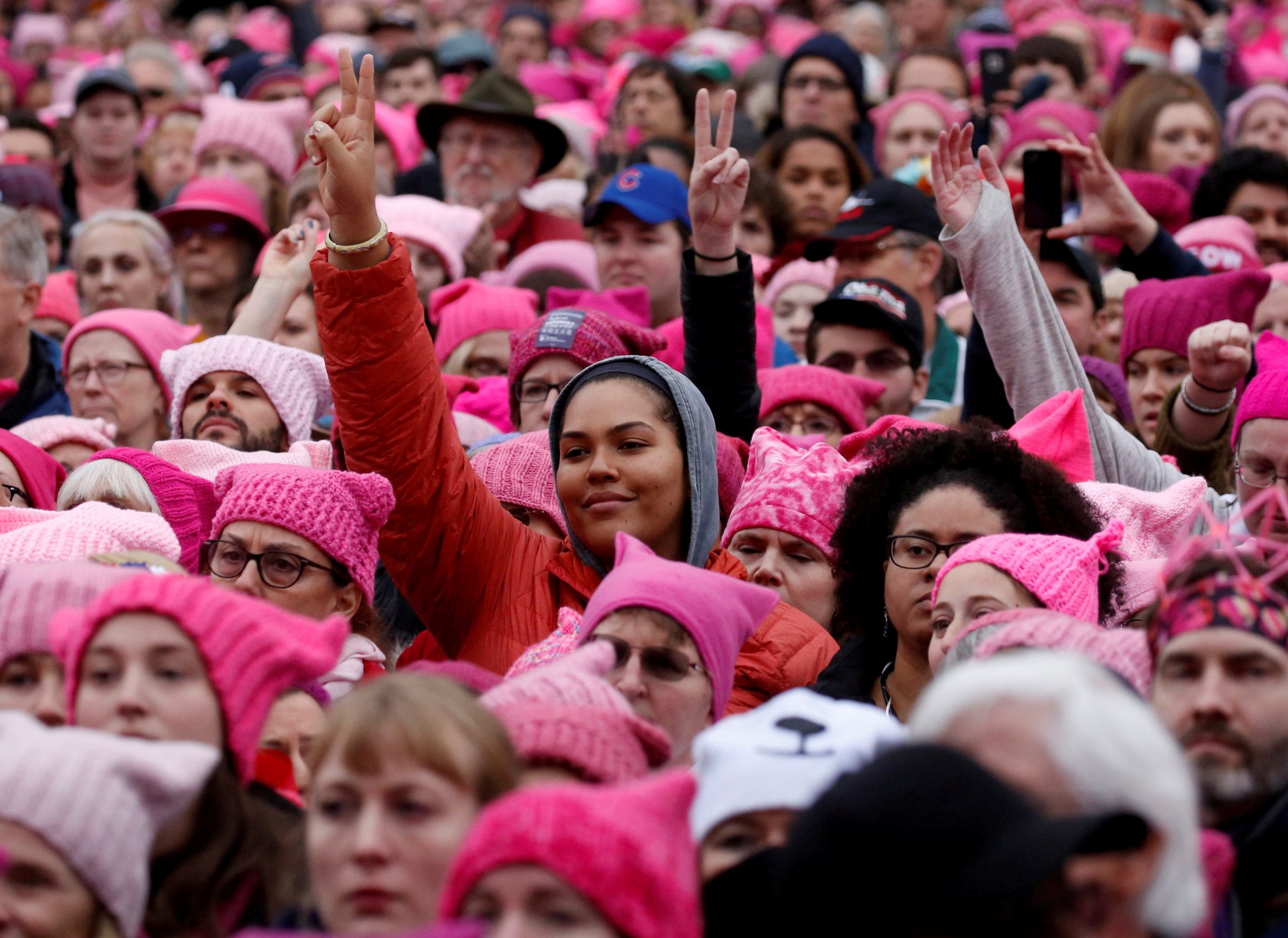
From Vietnam through Watergate and Exxon Valdez, and in my first newsroom jobs after college, reporters were roundly regarded as truth-tellers, and the power of journalism was considered incontrovertible.
Today huge swaths of the country distrust the media. From the bully pulpit, the president brushes aside stories he disagrees with as "fake news," and recently called the media "enemy number one." Truth has become subjective, and a top White House spokeswoman, in coining the term "alternative facts," is telling the country that it's all right to repackage reality to serve a political narrative.
Yet just as we did when Walter Cronkite covered Vietnam, drawing on dispatches from embedded reporters, we need great journalism to explain the world to us and to hold our government accountable to its citizens.
The need for independent, investigative news is especially clear when it comes to the issues that matter most to women. "Women's issues" have been championed for decades by both political parties, but more often than not used as a wedge to divide citizens, not unite them. The fact is, there's much more consensus on issues affecting women—and the need for continued action—than politicians would have you believe. When it comes to women's rights, more than 80 percent of women and men say it's important for the Trump administration and Congress to advance gender equality, according to a poll recently released by nonpartisan firm PerryUndem.
Family planning is often described as controversial, however, that same poll revealed that 85 percent of voters want to ensure women have access to quality, affordable birth control; 67 percent oppose nominating a Supreme Court justice based on their belief in restricting or eliminating women's right to an abortion; and 71 percent oppose taking away funds from Planned Parenthood that are used for birth control, well-woman care and cancer screenings for low-income women.
Surprised? We have grown so accustomed to the narrative that we are a divided nation, we don't realize that actually, when it comes to women's rights, we're almost entirely united in supporting them.
Even among those who voted for Trump, the majority do not fully support the agenda he aggressively advances on these issues. Actually, the gulf between what women in America want—and the mandate the new administration takes on their behalf—is glaringly wide.
We know that women hold a lot less power in the U.S.: they make up less than 13 percent of police officers nationwide; they publish fewer than 20 percent of newspaper op-eds; they hold just about one in five political seats around the country, and they are much more likely to be poor, and raising children alone.
Yet there is a competing narrative brewing among some women in America who reject these facts. This narrative hinges on personal experience, and perhaps a culture of personal resilience and independence. While millions of women marched on January 21, others called them out on social media as privileged, silly or feeling sorry for themselves.
But personal experience is not a wide enough lens to understand discrimination in America. For that, we have to examine the facts. And the facts are that countries with strong support for women's rights also have more prosperous economies, stronger national security, less corruption, less poverty and lower spending on defense.
We need journalists to report on these facts, and in particular, we need journalists focused on women's issues.
The power of media to speak truth to power is as strong as it has ever been. I remember when a single photo printed in the Washington Post turned the tide of public opinion against President Nixon. It was of Rose Mary Woods, Nixon's secretary, demonstrating how she had accidentally erased 18 minutes on Nixon's private taping system. She was pictured extended sideways in her chair, one heeled foot reaching for the machine pedal below her desk and one arm flung overhead to the telephone button she claimed to have pressed in error. It was plain to this then 11 year-old that the contorted "Rose Mary stretch" was a whopper.
Truth is often uncomfortable—but there's no viable alternative. And just as we did in the '70s, we still rely on journalists to discover and report it.
Sarah O'Hagan is the board chair of the Fuller Project for International Reporting, an independent media organization that reports the news that matters most to women, around the world and in the U.S.
Uncommon Knowledge
Newsweek is committed to challenging conventional wisdom and finding connections in the search for common ground.
Newsweek is committed to challenging conventional wisdom and finding connections in the search for common ground.
About the writer
To read how Newsweek uses AI as a newsroom tool, Click here.








